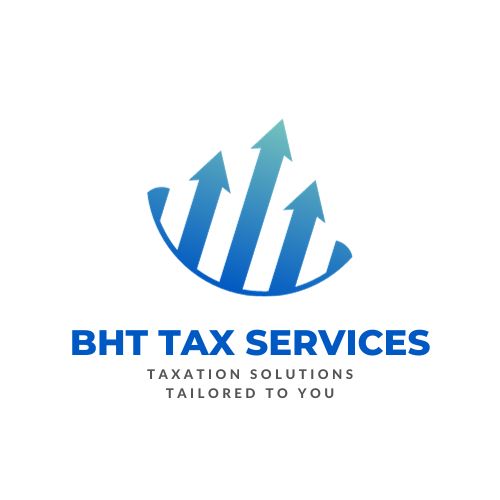
Investing in real estate offers lucrative opportunities, but it also comes with complex tax obligations. By leveraging smart tax strategies, real estate investors can significantly enhance their returns while remaining compliant with tax laws. This article delves into the most effective tax-saving techniques that can help you maximize your profits and optimize your investment portfolio.
Understanding Tax Benefits for Real Estate Investors
Real estate investors enjoy several tax advantages that other investment types might not provide. These include depreciation, deductions, and favorable tax rates. Let’s explore these benefits in detail:
1. Depreciation Deduction
One of the most powerful tools in a real estate investor’s arsenal is depreciation. The IRS allows investors to deduct the cost of the property over its useful life, typically 27.5 years for residential properties and 39 years for commercial properties. This non-cash deduction can significantly reduce taxable income.
- Example: If you own a residential rental property valued at $300,000 (excluding land), your annual depreciation deduction would be approximately $10,909. This deduction directly offsets rental income, lowering your overall tax burden.
2. Mortgage Interest Deduction
Mortgage interest on loans taken to purchase or improve rental properties is fully deductible. This deduction can represent a substantial saving, especially in the early years of a loan when interest payments are highest.
- Key Tip: Keep meticulous records of mortgage payments and ensure proper categorization of interest versus principal payments.
3. Expense Deductions
Investors can deduct ordinary and necessary expenses incurred in managing and maintaining their properties. These include:
- Property management fees
- Repairs and maintenance costs
- Insurance premiums
- Utilities
- Advertising costs for finding tenants
By claiming these deductions, you can effectively reduce your taxable rental income.
Advanced Tax Strategies to Maximize Returns
For seasoned investors, advanced tax strategies can offer even greater savings. Here are some techniques to consider:
4. Utilize 1031 Exchanges
A 1031 exchange allows investors to defer capital gains taxes when selling a property and reinvesting the proceeds into a similar property. This strategy helps preserve capital and enables portfolio growth.
- Example: If you sell a property for a $500,000 gain and reinvest it in another property, you can defer the capital gains tax until the replacement property is sold.
5. Invest in Opportunity Zones
Opportunity Zones are designated areas that offer tax incentives for real estate investments. By investing in these zones, you can defer and even reduce capital gains taxes.
- Benefit: Gains reinvested in Opportunity Zones can be tax-deferred until 2026, with additional reductions if held for specific periods.
6. Real Estate Professional Status
Qualifying as a Real Estate Professional under IRS rules can unlock additional tax benefits. Active participants in managing their properties can offset non-passive income with real estate losses.
- Requirements:
- Spend at least 750 hours annually on real estate activities.
- Real estate must constitute more than half of your total working hours.
Tax-Efficient Financing and Structuring
How you structure your real estate investments can significantly impact your tax liability. Here’s what to keep in mind:
7. Consider Setting Up an LLC
Holding real estate through a Limited Liability Company (LLC) can offer liability protection and tax flexibility. LLCs are pass-through entities, meaning profits and losses are reported on the owner’s personal tax return.
- Pro Tip: Consult with a tax professional to determine the best entity structure for your investment goals.
8. Leverage Cost Segregation Studies
A cost segregation study identifies specific components of a property that can be depreciated over shorter periods, such as 5, 7, or 15 years. This accelerates depreciation deductions, increasing cash flow.
- Ideal for: High-value properties with significant non-structural assets like appliances, fixtures, and landscaping.
Tax Considerations for Short-Term Rentals
Short-term rental properties, such as those listed on Airbnb or VRBO, are subject to unique tax rules. Investors in this niche should be aware of the following:
9. Self-Employment Tax Implications
If you actively manage a short-term rental, income may be subject to self-employment taxes. Proper record-keeping and tax planning can help mitigate this liability.
10. Deducting Personal Use
If you use the property for personal purposes, deductions may be limited. The IRS requires strict allocation between personal and rental use.
Avoiding Common Tax Pitfalls
Tax planning for real estate involves navigating complex regulations. Avoid these common mistakes to safeguard your investments:
11. Failing to Track Expenses
Maintaining detailed records of all income and expenses is crucial for maximizing deductions and minimizing audit risks. Consider using accounting software tailored for real estate.
12. Overlooking State and Local Taxes
State and local tax laws vary widely, and failing to account for them can lead to unexpected liabilities. Stay informed about property taxes, transfer taxes, and local levies.
The Role of Professional Advisors
Collaborating with experienced tax advisors and CPAs can be invaluable for real estate investors. These professionals can:
- Identify overlooked deductions
- Ensure compliance with evolving tax laws
- Develop customized strategies to align with your investment goals
Conclusion
By leveraging these tax strategies, real estate investors can maximize their returns and build long-term wealth. Whether you’re a seasoned investor or just starting, understanding the tax landscape is essential to optimizing your investments.
For more tips and resources to boost your real estate investment success, consult a tax professional and stay informed about regulatory changes.
